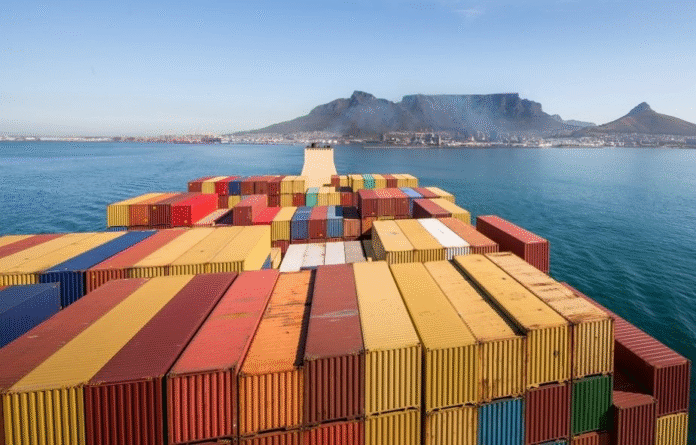Illustrative Image: Unlocking Africa’s Blue Economy: Sustainable Ocean Resources Driving Innovation, Jobs, and Economic Growth
Image Source & Credit: Raconteur
Ownership and Usage Policy
Africa possesses one of the most extensive maritime territories in the world. Its oceans, seas, and inland waters stretch across nearly 20 million square kilometers—a vast resource that holds immense potential for economic growth if harnessed sustainably. Globally, initiatives like the G20 and the African Union recognize the strategic importance of the blue economy as a key driver of economic transformation on the continent.
Nomtha Hadi, a researcher specializing in blue economies, explores the challenges and opportunities for Africa’s maritime sector in a conversation with The Conversation Africa.
What is the Blue Economy?
The blue economy refers to the sustainable use of oceanic and freshwater resources to generate economic growth, create jobs, and improve livelihoods. Unlike traditional economic models, the blue economy emphasizes a balance between economic development and environmental protection. This approach ensures that marine ecosystems are preserved while allowing human activities to thrive, securing long-term benefits for future generations.
Essentially, a robust blue economy requires strategic management of often competing ecological and economic objectives. Without careful regulation, overexploitation of resources can undermine the very industries the blue economy seeks to support.
Key Industries within Africa’s Blue Economy
Africa’s coastline and island nations—including Mauritius, Comoros, Seychelles, and Madagascar—already support a range of emerging blue economy sectors. These include:
-
Aquaculture: Expanding fish and seafood farming to improve food security and provide livelihoods.
-
Bio-products: Creating pharmaceuticals, agrichemicals, and fertilizers from marine resources such as kelp.
-
Ocean carbon storage: Utilizing mangroves, seagrass, and saltmarshes to capture and store carbon, contributing to climate change mitigation.
-
Seawater desalination: Addressing water scarcity through sustainable technologies.
-
Marine renewable energy: Developing wind, wave, and tidal energy technologies for clean energy generation.
The fisheries and aquaculture industries alone already feed over 200 million Africans. Across inland and marine fisheries, processing facilities, and licensed local fleets, these industries employ more than 12 million people and contribute an estimated US$24 billion annually—representing 1.26% of Africa’s total GDP and 6% of its agricultural GDP.
Recognizing this potential, the African Union has established the 2050 Africa Integrated Maritime Strategy, which outlines how the continent can leverage its oceans for sustainable development while minimizing environmental harm. Its overarching goal is to accelerate wealth creation from Africa’s vast maritime resources.
Challenges to Developing Africa’s Blue Economy
Despite its promise, Africa’s blue economy faces significant obstacles. Marine ecosystems are under increasing pressure from human activity, climate change, and environmental degradation. Key challenges include:
-
Pollution: Land-based sources contribute to water contamination, affecting fisheries and marine life.
-
Illegal, unregulated, and unreported fishing: Overfishing depletes stocks, threatening both food security and industry sustainability.
-
Climate change impacts: Rising temperatures, sea level rise, ocean acidification, and loss of biodiversity threaten marine ecosystems.
-
Disease outbreaks in aquaculture and fisheries: These can reduce productivity and destabilize local economies.
To ensure a resilient blue economy, it is crucial to address these threats through integrated policies and sustainable management practices.
Global and Regional Initiatives: The Role of the G20
Before assuming the G20 presidency, South Africa prioritized policies aimed at marine conservation and sustainable ocean use. Initiatives like Operation Phakisa serve as national blueprints for leveraging ocean resources for economic growth while ensuring ecological protection.
South Africa has used its G20 presidency to advance the Ocean 20 initiative, originally launched by Brazil. Ocean 20 promotes collaboration among governments, researchers, businesses, and civil society, with a strong emphasis on community inclusion, innovation, and sustainable development.
To transform these plans into tangible results, the following strategies are critical:
-
Investment in research and innovation: Funding is needed for technology development, product commercialization, and training programs to accelerate blue economy growth.
-
Skills development and lifelong learning: Workers and researchers require ongoing training to adapt to technological advancements, including artificial intelligence and automation, which are transforming ocean industries.
-
Multi-stakeholder collaboration: Governments, businesses, investors, and communities must work together to coordinate initiatives, share resources, and ensure accountability.
-
Cross-border cooperation: Collaborative efforts between countries can strengthen emerging industries and create economies of scale, fostering sustainable growth.
A sustainable and prosperous blue economy cannot be built by a single government, organization, or industry. Success depends on cooperation across governments, global organizations, academia, civil society, and private enterprises—all working together to balance economic development with ecological stewardship.
Unlocking Africa’s Ocean Potential
Africa’s oceans are more than natural wonders—they are engines of economic opportunity, innovation, and sustainable growth. By strategically funding research, promoting innovation, fostering collaboration, and prioritizing environmental stewardship, Africa can harness its maritime resources to build resilient, inclusive, and future-ready blue economies. The continent stands at a pivotal moment: with coordinated action, Africa’s oceans could power decades of prosperity for millions of people.
















 The African Research (AR) Index is a comprehensive scholarly directory and database focused explicitly on journal publishers that publish and disseminate African research.
The African Research (AR) Index is a comprehensive scholarly directory and database focused explicitly on journal publishers that publish and disseminate African research.

